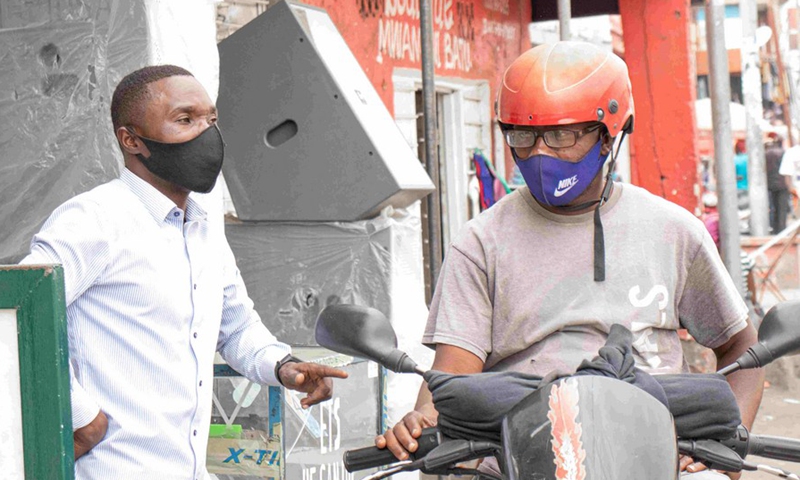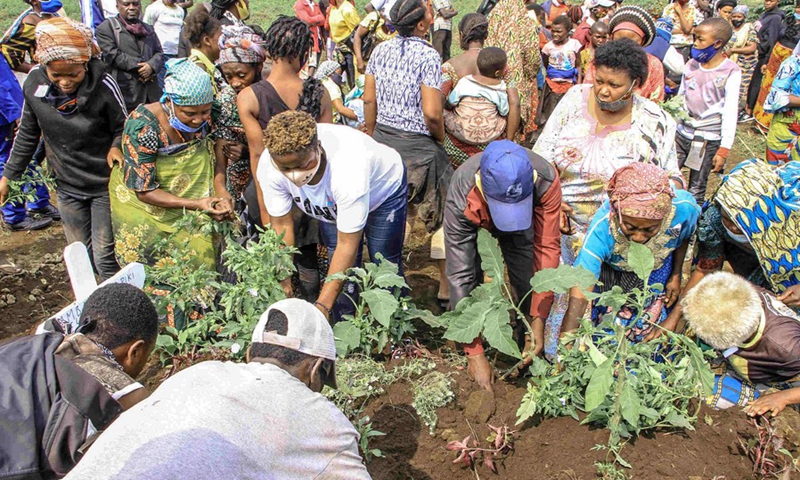
Photo taken on July 30, 2021 shows people wearing face masks in Goma, capital of North Kivu province, northeastern Democratic Republic of the Congo.(Photo: Xinhua)

People attend a funeral of deceased COVID-19 patients at a cemetery in Goma, capital of North Kivu province, northeastern Democratic Republic of the Congo, on July 15, 2021.(Photo: Xinhua)
The number of COVID-19 cases in the Democratic Republic of the Congo (DRC) is heading toward 50,000 as the Delta variant and oxygen supply shortage pose more challenges.
Out of 1,797 samples tested on Thursday, the DRC recorded 143 new confirmed cases, announced on Friday DRC's technical secretariat of the COVID-19 response, which did not provide data on new deaths among the confirmed cases.
Since the country declared the outbreak of the disease on March 10, 2020, it has now reported 49,563 confirmed cases. In total, there have been 1,023 deaths reported.
According to Jean-Jacques Muyembe, who is leading the national response to COVID-19, the Delta variant is currently responsible for 84 percent of infections in DRC, where the Alpha variant and the Beta variant were also detected.
The more virulent Delta variant leads to more severe symptoms of the disease and therefore more hospitalizations. Goma in northeastern DRC, which was recently declared the country's new epicenter, is now facing oxygen supply shortage in its hospitals.
"We have a lot of patients who need oxygen. But it becomes difficult for us to provide it to them. We need a large production unit, here we only produce 15 bottles a day," said Bernard Kalubi, an oxygen production technician at Goma's Kyeshero hospital.
"The big difficulty we have is the oxygen deficiency. So when the stockpile is completely depleted, it could be very dangerous for them. There are two or three patients who are in a critical condition, and who need oxygen assistance," said Francois Harakandi, medical director of the hospital La Charite Maternelle in Goma.
Since July 10, vaccination against COVID-19 has been suspended due to a stock-out of the AstraZeneca vaccine that the DRC has received earlier through COVAX. According to the DRC's health authorities, the country is expecting new doses of vaccines delivered in August.
"Together we must prepare the population to receive the vaccine so that we can be free to travel," said Dr Muyembe, calling on the people to be vaccinated in order to avoid being denied access to other countries.
Since the start of vaccination on April 19 this year, 78,871 people have been vaccinated to date, of whom 2,513 have received the second dose.
